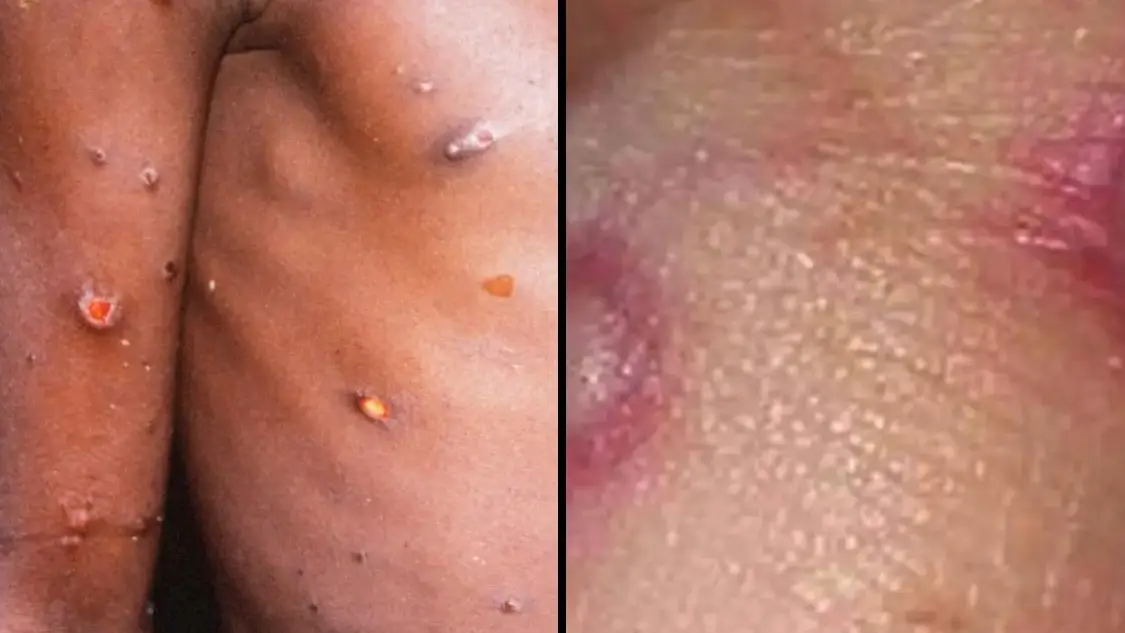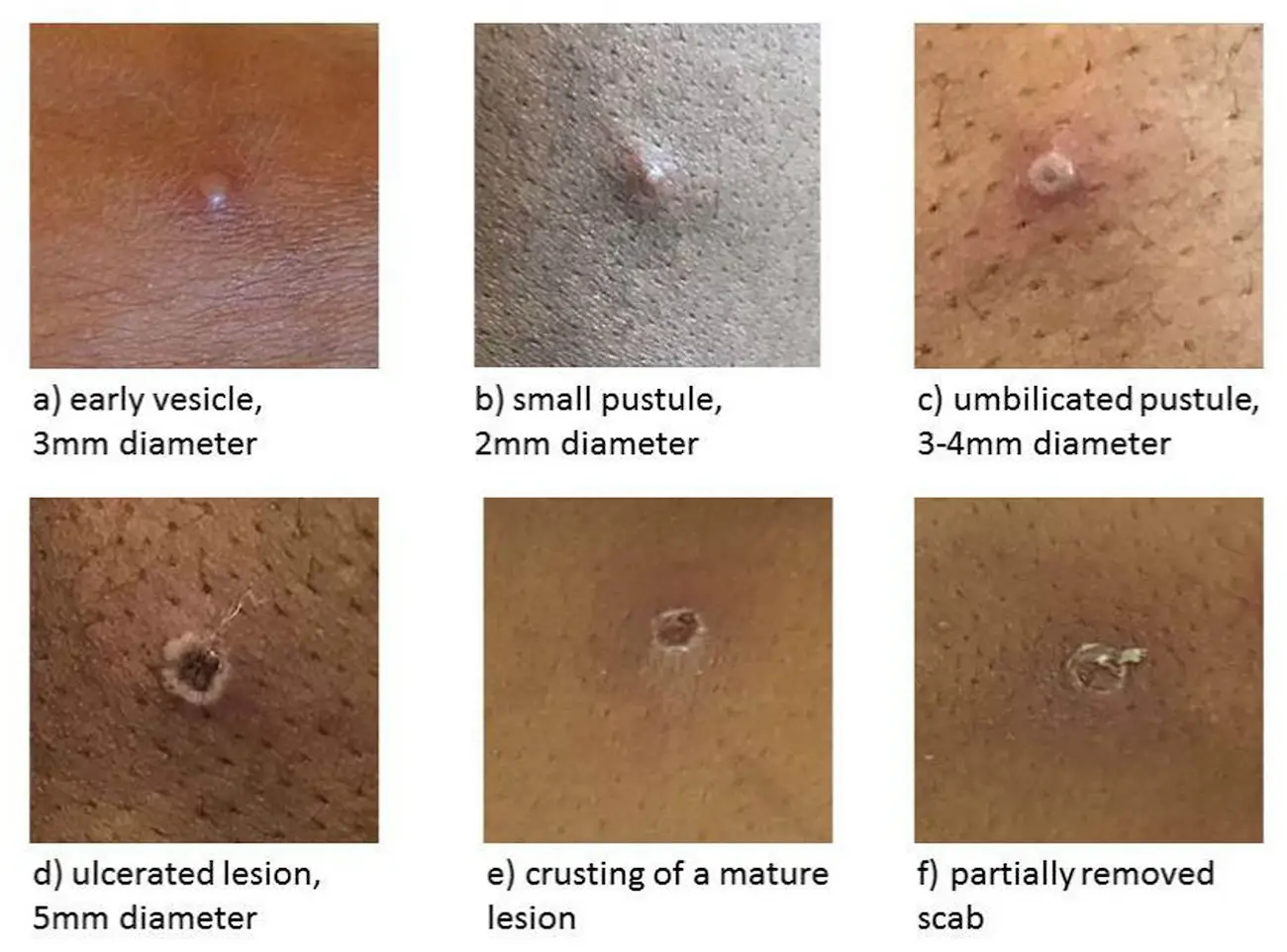
Images of the early stages of monkeypox have been released by the UK Health Security Agency (UKHSA), as it gave an update on the rising cases in the UK.
At the moment, the UKHSA claims there are a total of 57 confirmed cases in the UK; 56 cases in England and one case in Scotland.
Although the disease is usually mild, it can cause severe illness in some cases.
General symptoms include fever, headache, muscle aches, backache, swollen lymph nodes, chills and exhaustion, according to the NHS.
Advert
A rash can also develop, often starting on the face, which then can spread to other parts of the body, including genitalia.

Professor David Heymann, the World Health Organization’s (WHO) former assistant director-general for health security and environment, believes that the spread of the disease has been due to sexual transmission at raves in Europe.
He said: "We know monkeypox can spread when there is close contact with the lesions of someone who is infected, and it looks like sexual contact has now amplified that transmission."
Notably, he also mentions that his hypothesis is one among many.
Experts have warned against 'misinformation, stigma and discrimination' around the condition.
During a WHO question and answer session, Andy Seale, an adviser with an HIV, hepatitis and STI programme, said: "There are ways that we can work with communities to learn from really decades of experience around tackling stigma and discrimination with HIV.
"We want to apply that lesson, those lessons learned, to this experience."
Boris Johnson has said monkeypox is a rare disease but it is important to 'keep an eye on it'.
The prime minister told reporters on a visit to a school in south-east London: “It’s basically a very rare disease and so far the consequences don’t seem to be very serious, but it’s important that we keep an eye on it and that’s exactly what the new UK Health Security Agency is doing.”
Asked whether there should be quarantine for visitors or the use of the smallpox vaccine, Johnson said: "As things stand the judgment is that it’s rare.
"I think we’re looking very carefully at the circumstances of transmission.
"It hasn’t yet proved fatal in any case that we know of, certainly not in this country."
Anyone with unusual rashes or lesions on any part of their body should contact NHS 111 or call a sexual health service, the UKHSA have said.
Topics: UK News